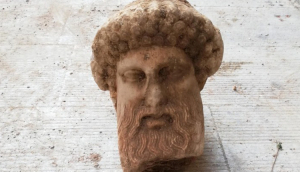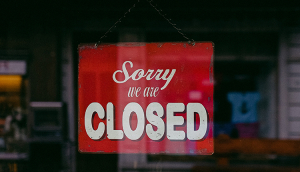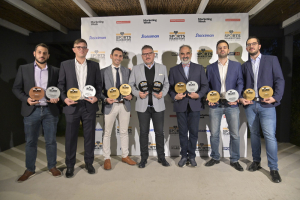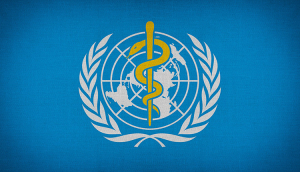LIFE & CULTURE
XpatAthens
Ancient Head Sculpture Unearthed In Central Athens
To read this article in full, please visit: amna.gr
Enjoy An Athens Culture Trip From Home
A curated guide to experiencing Athens’ dynamic cultural life on-line—whether you want a full day fix, a half-day holiday, or just an hour’s escape.
Theatre, art, wine and song. Athenians have been culture-mad since antiquity. While we stay on the sidelines for the greater good, culture is one of the best escapes still left to us. From virtual museum and gallery tours to contemporary stage productions and feel-good concerts, here’s our constantly updated armchair guide to the best on-line arts and entertainment that cultured Athens has to offer for those times when you can't get here yourself. Best of all, it won’t cost you a cent.
History At Home
Skip back through the millennia to learn about Health, illness and treatment in Ancient Greece in the Museum of Cycladic Art’s digital classroom as part of their new Home Activities platform. What could be more timely? Just a few clicks more and you’ll fall under the spell of filmmaker Georgis Grigorakis’ hypnotic contemporary video sculpture as he depicts hyper real Aegean seascapes, inspired by timeless Cycladic Art. It’s also part of the Museum of Cycladic Art’s Home Activities series.
Get a jump start on your next Athens city break with a digital stroll through more of our riveting museums. Thanks to the Google Arts & Culture platform, you can eyeball ancient marvels like Pheidias’ 5th century BC Parthenon sculptures in high-definition detail on a virtual visit to the world-famous Acropolis Museum.
Next, snoop around all four of the Benaki Museum’s sites on 360 degree virtual tours. Start from the flagship Benaki Museum of Greek Culture which offers a one-stop panorama of Greek history from prehistoric times, and end with the stunning exhibits of the Benaki Islamic Art Museum collection. Bone up on your art education with Hellenic Together, and hear video talks about everything from wedding rituals in Classical Greece to the charmed 20th century lives of British grecophiles Patrick Leigh Fermor and John Craxton.
Affairs Of The Art
Step inside the mind of American art superstar George Condo as he leads a fascinating video tour through the light-filled spaces of the Cycladic Museum and explains how these ancient wonders inspired his recent collection.
Dive into the Neon Art Foundation’s colourful video bank and watch Athens-based dialogues with famous international artists who’ve staged recent projects in the Greek capital like Michael Landy and Lynda Benglis.
Ogle at one of the world’s most astounding private art collections (including a 1580s El Greco). The Basil and Elise Goulandris Foundation has uploaded a virtual exhibition of 198 masterpieces on display at their new Pangrati gallery. Flit between Van Goghs, Rodins and Picassos and give yourself a crash course in the leading lights of modern Greek art as well (such as Parthenis, Tsarouchis, Moralis and Tetsis). There are detailed descriptions and background to each work in English.
Soak up Athens’ red-hot street art scene with our slideshow gallery of the city’s most loved murals, such as WD’s piercing, all-seeing owl in Metaxourgio or the Praying Hands of Pavlos Tsakonas that descend God-like over Pireos Street.
Opera lovers and drama queens of all ages can roll back the clock with the Greek National Opera’s immersive photography archive of productions, spanning the last 80 years. Worth it for the incredible costumes alone!
Take a crash course in what to see (and why) at Greece’s new contemporary art temple EMST - then listen to the gallery staff talk about their favourite exhibits in English here. Or take the temperature of Athens’ hottest emerging art hub, Piraeus, with a virtual tour of new art space, Carwan gallery.
Contemporary & Alternative Culture
For the ultimate escapism, grab a front row seat at the history-making fashion show of Greek designer Mary Katrantzou, staged last year at Poseidon’s mighty temple at Cape Sounion, with an original score by the legendary Vangelis.
From digital dives down black holes, to an immersive new world of BioArt, glimpse a future where art meets science as trippy visual arts platform, Athens Digital Arts Festival (ADAF), broadcasts live highlights for both adults and kids. Tune in on their ADAF Live YouTube channel.
From sold-out shows and virtual cinematic experiences to secret concerts, the Onassis Stegi has launched a brilliant free library of content through its We Stay Close, Not Closed showcase (some of it never before seen). New content is made available every week but here are some current highlights:
• In these dystopian days, what could be more cathartic than tumbling down the rabbit hole with the scriptwriter who lit the spark for a new golden era of Greek Cinema with Dogtooth and The Lobster? Get lost in Efthimis Filippou’s bizarre Emata (Bloods), a performance-concert about our open wounds that’s ripe with oddness and black humour (Greek and English sub-titles available).
• Hear hot New York author Daniel Mendlesohn riff on the Narcissism of Homoerotic Relationships or Hollywood star Paul Giamatti ponder Narcissus and Acting in front of a live audience.
• Dose up on the exquisite melancholy of Rebetika: The Blues of Greece as Lena Kitsopoulou and her band of traditional Greek musicians transport you to the backstreets of Athens and Piraeus from Joe’s Pub in New York.
Thank you This is Athens for your contribution as an XpatAthens Partner.
Plans For Greece’s Largest Solar Power Plant Are Underway
To date, the Greek people and economy are heavily reliant on oil and coal, which are heavy pollutants that need to be phased out to protect the environment and climate and fit into the European Union's climate goals.
The 75 million euro project fits perfectly into the European Commission's plans for a green economic recovery from the coronavirus pandemic and will be funded by the European Bank for Reconstruction of Development.
To read this article in full, please visit: themayor.eu
Rules For Domestic And International Flights During Lockdown In Greece
1. The Passenger Locator Form submission confirmation
2. The correspondence with the QR code and the Passenger Locator Form
Airlines that do not comply with the new rules will be responsible for the repatriation of passengers at their own expense.
To read this article in full, please visit: greekcitytimes.com
Second Lockdown In Greece
National Theatre Of Greece: The Lady From Maxim's (With Supertitles In English)
Note 2: Wearing a mask is obligatory
Municipality Of Athens Launches Website For The City’s Cats And Dogs
To read this article in full, please visit: gtp.gr
Prime Minister To Announce New Measures
“We are facing the second wave of the pandemic. We are still doing better than the rest of Europe, but that is not a consolation,” he added.
Possible measures include a public curfew from 12.30 a.m. to 5 a.m. in an attempt to curb outdoor parties and gatherings, the mandatory use of face masks everywhere, and a possible ban on travel outside the region.
To read this article in full, please visit: ekathimerini.com
Active Media Group: Top Agency In Sports Tourism For 2nd Consecutive Year
Active Media Group continues to innovate, create, and lead in the field of sports tourism. The company triumphed in this institution, winning a total of 14 awards while highlighting the high standard services provided by all its departments:
• PR & Communication
• Social Media & Digital
• Marketing & Sponsorship
• Sports Production
• Sports Presentation
More specifically, Active Media Group received 8 awards for the event of Navarino Challenge, which emerged as the top sports tourism event, with 1 Platinum in the “Best Integration of Digital Media with Offline” category, 4 Gold in the “Sports Tourism”, “Running & Live Well”, “Best CSR Campaign / Activity” and “Native Advertising Campaign” categories, as well as 3 Silver in the “Best Sports-related Content during the Coronavirus pandemic”, “Sports Organization / Event Sponsorship” and “Best CSR Campaign / Activity” categories for its collaborations with Costa Navarino, Pylos-Nestor Municipality, Captain Vasilis and Carmen Konstantakopoulos Foundation, Samsung and 24MEDIA respectively.
It is worth noting that 3 of the 4 awarded projects were implemented in the Region of Peloponnese.
At the same time, the company won 3 awards for the Santorini Experience event, which received 1 Gold in the “Water Sports / Summer Sports / Winter Sports” category, 1 Silver in the “Best Integration of Digital Media with Offline” category, and 1 Bronze in the “Sports Tourism” category, for its collaborations with the Municipality of Santorini and the Municipal Sports Cultural Environmental Organization of Santorini (DAPPOS).
Finally, the company won 1 Gold award for the event of the 2019 Mediterranean Beach Games in Patras, one of the major multi-sport events that have taken place in Greece, in the “Best Live Event Coverage” category and 1 Gold award for the Greek Maritime Golf Event tournament in the “Individual Sports” category.
#activemediagroup
Website
Vimeo
YouTube
Photo by: Kornilios Sarantioglou
World Health Organization To Establish A New Office Ιn Athens
- The emergence of Greece as a protagonist for its resilience to the health challenges caused by the COVID-19 pandemic.
- The vital knowledge and experience gained by Greece in quality of patient care and safety, with the legislation and establishment of the National Organization for Quality Assurance in Health. These practices can be adapted to the needs of other countries in the WHO European Region.
- Successful management in implementing the anti-smoking law, which has improved the level of public health and safety of patients.
- The unique features of Greece that can protect health and improve the quality of life have not been taken into account in the quality of care models. Greece, for example, with its record of longevity and the Mediterranean diet, can be the perfect example for improving the quality of life in Europe.
- The experience of the Organization's Office in Greece in the transformation of health systems, which provides a strong base and an extensive network, on which future work will be based, even beyond the national level.
To read this article in full, please visit: greekreporter.com













